Instant Opinion: young people have learned that ‘hard work doesn’t pay’
Your guide to the best columns and commentary on Wednesday 19 August
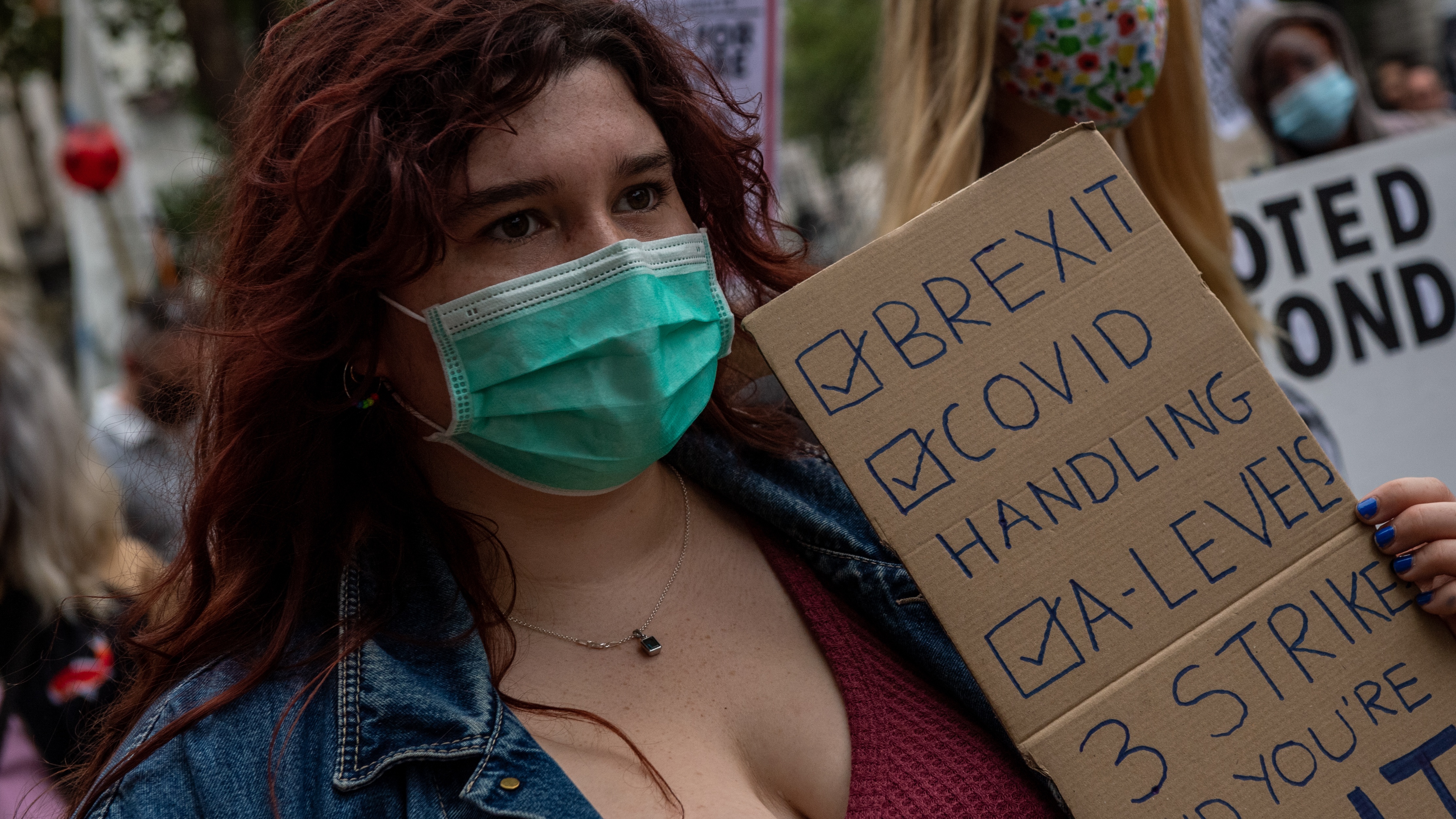
The Week’s daily round-up highlights the five best opinion pieces from across the British and international media, with excerpts from each.
1. Martha Gill in The Times
on the idea that toil equals success
The Week
Escape your echo chamber. Get the facts behind the news, plus analysis from multiple perspectives.

Sign up for The Week's Free Newsletters
From our morning news briefing to a weekly Good News Newsletter, get the best of The Week delivered directly to your inbox.
From our morning news briefing to a weekly Good News Newsletter, get the best of The Week delivered directly to your inbox.
Young people get it - hard work doesn’t pay
“For the young... the workplace might look much as it does to a disillusioned 60-year-old. Opportunities thinning, success increasingly out of reach and subject anyway to forces outside your control. You could grind yourself into the ground working 12-hour days — but really, why would you bother? Trying to enjoy life a bit instead looks like a far safer investment. Generation burnout is here. What are employers to do about it? One idea, of course, is to fix unfairness where they can and hope the economy picks up. But cultural change is needed, too. The idea that anyone can succeed if they put in the hours just won’t cut it with the new workforce: they already know it’s not quite true... Sensibly, they don’t trust that rewards will come later, so, rationally, they would at least like a few small ones now.”
2. Philip Johnston in The Daily Telegraph
on hot the A-level fiasco will hit the Tories hard
A free daily email with the biggest news stories of the day – and the best features from TheWeek.com
Governments are rarely able to survive the stench of incompetence
“The reputation of the Conservative Party has always rested on the virtues of pragmatism and competence. Even when the former is supplanted by dogma, as with Mrs Thatcher, the latter has usually been its saving grace. But what voters cannot abide is a total screw-up and the perception of a loss of control. This is why the exams mess is so dangerous for Mr Johnson. Throughout the pandemic, polling has indicated general support for the Government. Enough people have been spooked by the prospect of their imminent demise to back any madcap response, whether mandatory mask wearing, arbitrary rules about weddings and funerals, or incoherent quarantine regulations... If Starmer can establish Labour as a credible alternative government and exorcise the spectre of loopy Left Corbynism (which remains a big if), Mr Johnson will be in trouble, not just with the voters but with his own MPs. As we have seen many times, there is no more ruthless political animal than a Tory backbencher fearing for his or her seat at the next election.”
3. Greta Thunberg in The Guardian
on acting like we are in a crisis
After two years of school strikes, the world is still in a state of climate crisis denial
“Over these past two years, the world has also emitted more than 80 gigatonnes of CO2. We have seen continuous natural disasters taking place across the globe: wildfires, heatwaves, flooding, hurricanes, storms, thawing of permafrost and collapsing of glaciers and whole ecosystems. Many lives and livelihoods have been lost. And this is only the very beginning. Today, leaders all over the world are speaking of an ‘existential crisis’. The climate emergency is discussed on countless panels and summits. Commitments are being made, big speeches are given. Yet, when it comes to action we are still in a state of denial. The climate and ecological crisis has never once been treated as a crisis. The gap between what we need to do and what’s actually being done is widening by the minute. Effectively, we have lost another two crucial years to political inaction.”
4. Holly Baxter in The Independent
on the future of the US left
In just 90 seconds, AOC told us everything we need to know about Joe Biden and the future of the Democrats
“Representative Alexandria Ocasio-Cortez was given just 90 seconds to speak at the Democratic National Convention [last night] - 30 longer than had been rumored - and she used them to great effect. The Bronx native chose to officially nominate Bernie Sanders in a race we all knew the Vermont senator had already lost... Not long ago, Joe Biden was the past, and plenty of young Democrats like Ocasio-Cortez are not ready to rejig their timelines and see him as the future. Today, she took the symbolic torch from Bernie Sanders - who has said that he will not run for president again - by appearing and reiterating her support not just for him but for ‘his movement’. That probably explains why Bernie sounded so wistful during his less-than-uplifting speech yesterday. And perhaps in 2028 or later, we will see AOC stand for the presidency herself as the Sanders legacy candidate, repeating some of the words she used when Biden ran in 2020. The young people who felt inspired by Sanders this year and in 2016 will remember her loyalty. But it’s a risky game: the moderate Democrats will similarly remember how she quite literally failed to toe the party line.”
5. Dr Elisabeth Rosenthal in The New York Times
on taking stock of our risk tolerance
Learning to Live With the Coronavirus
“As some parts of America gingerly begin to open up after months of near total lockdown, people have questions. Will it be safe to take a train? A plane? Visit the hair salon? An indoor restaurant? There are many knowable parameters in the equation: your health; the prevalence of cases where you live; the safety precautions being taken any place you want to visit. But the final answer may depend on your individual risk tolerance for exposure to infectious disease. Most Americans alive today have never before had to make that self-assessment. In the past, deadly outbreaks of plague, flu and polio were regular occurrences. Up until the mid to late 20th century there were mumps, measles and chickenpox to contend with. In a world of effective antibiotics and antivirals and other treatments, deaths or even serious illnesses from infectious disease seem nearly incomprehensible. So our fear is enormous, and our risk tolerance for exposure is just about zero.”
-
 Syria’s Kurds: abandoned by their US ally
Syria’s Kurds: abandoned by their US allyTalking Point Ahmed al-Sharaa’s lightning offensive against Syrian Kurdistan belies his promise to respect the country’s ethnic minorities
-
 The ‘mad king’: has Trump finally lost it?
The ‘mad king’: has Trump finally lost it?Talking Point Rambling speeches, wind turbine obsession, and an ‘unhinged’ letter to Norway’s prime minister have caused concern whether the rest of his term is ‘sustainable’
-
 5 highly hypocritical cartoons about the Second Amendment
5 highly hypocritical cartoons about the Second AmendmentCartoons Artists take on Kyle Rittenhouse, the blame game, and more
-
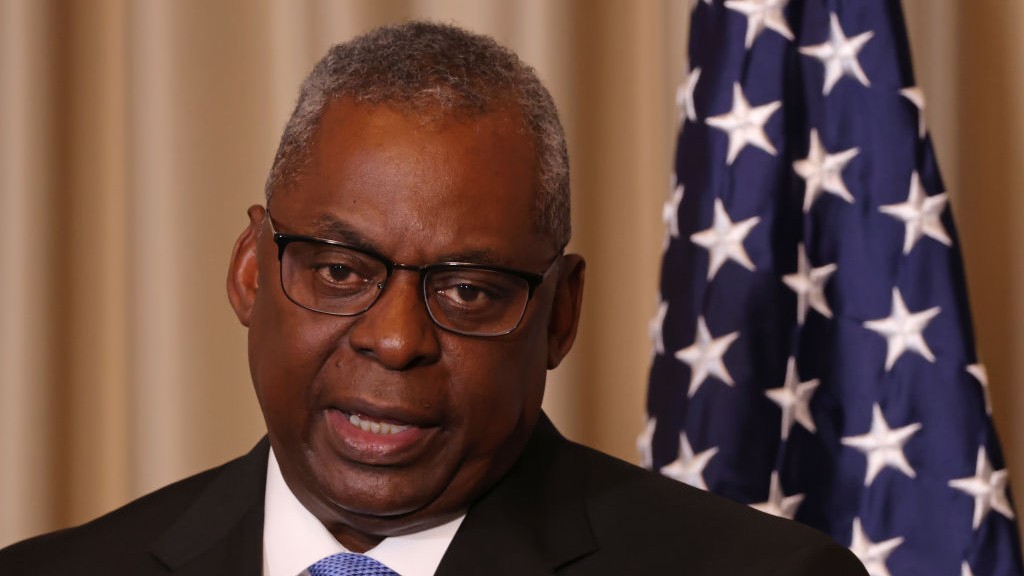 10 things you need to know today: January 7, 2024
10 things you need to know today: January 7, 2024Daily Briefing White House reportedly left unaware of defense secretary’s hospitalization, Biden to deliver State of the Union address on March 7, and more
-
 Triangle-headed aliens touched Goldie Hawn
Triangle-headed aliens touched Goldie HawnTall Tales And other stories from the stranger side of life
-
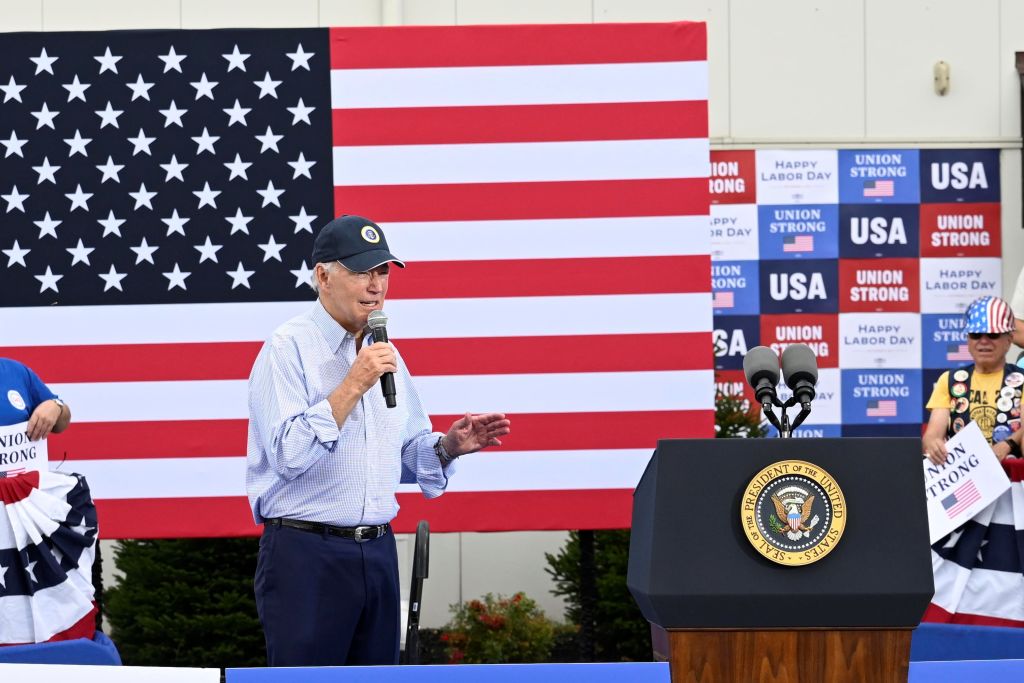 10 things you need to know today: September 5, 2023
10 things you need to know today: September 5, 2023Daily Briefing President Biden courts unions on Labor Day, thousands leave Burning Man after being trapped by desert mud, and more
-
 ‘Irony’ as Zoom calls staff back to office
‘Irony’ as Zoom calls staff back to officefeature And other stories from the stranger side of life
-
 The U.S. veterinarian shortage crisis
The U.S. veterinarian shortage crisisSpeed Read With an anticipated shortage of 15,000 vets by 2030, it will be harder to get care for pets
-
 Company teaches mask-wearers to smile again
Company teaches mask-wearers to smile againfeature And other stories from the stranger side of life
-
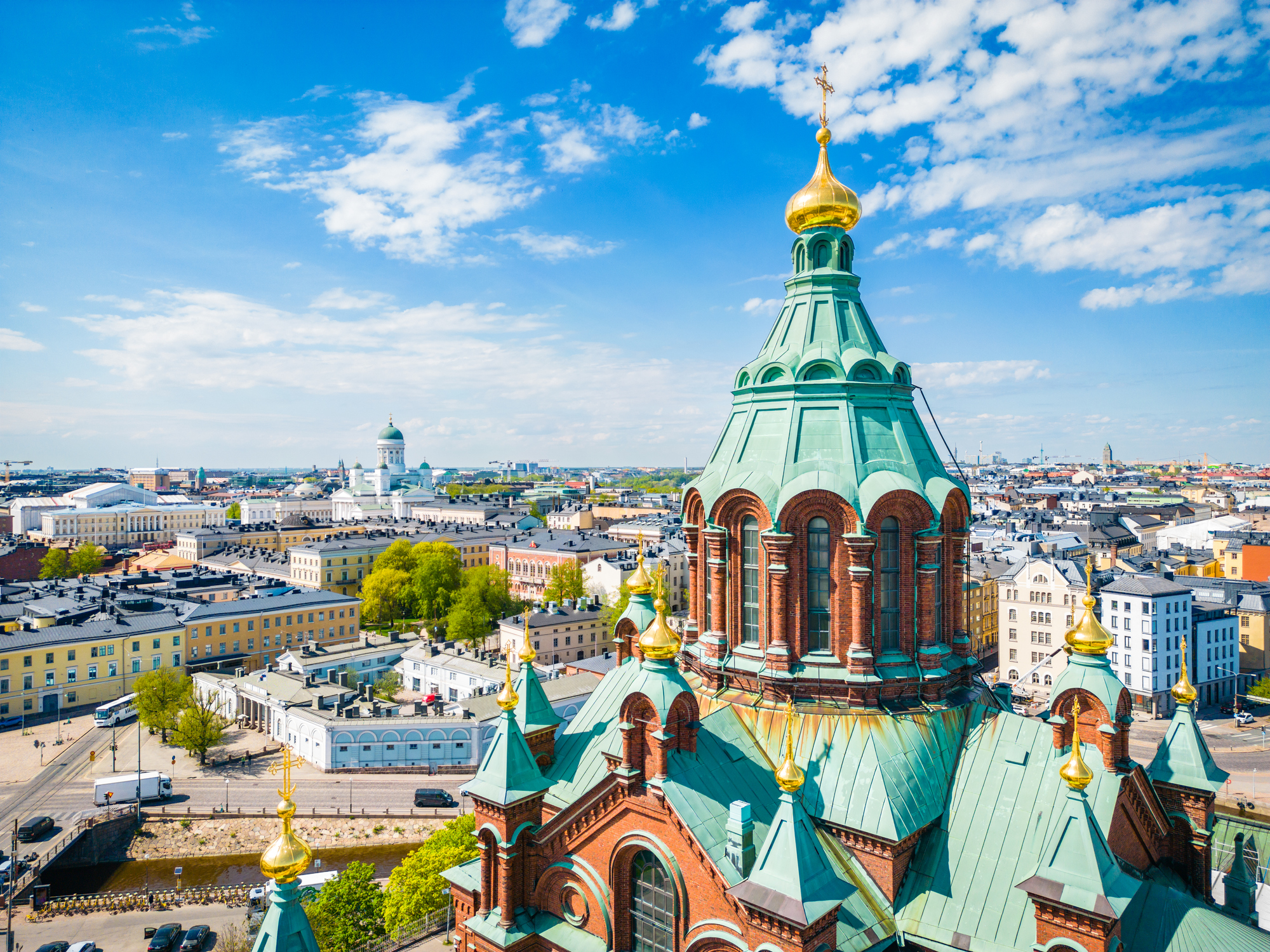 Global happiness has been 'remarkably resilient' over the past three years
Global happiness has been 'remarkably resilient' over the past three yearsfeature
-
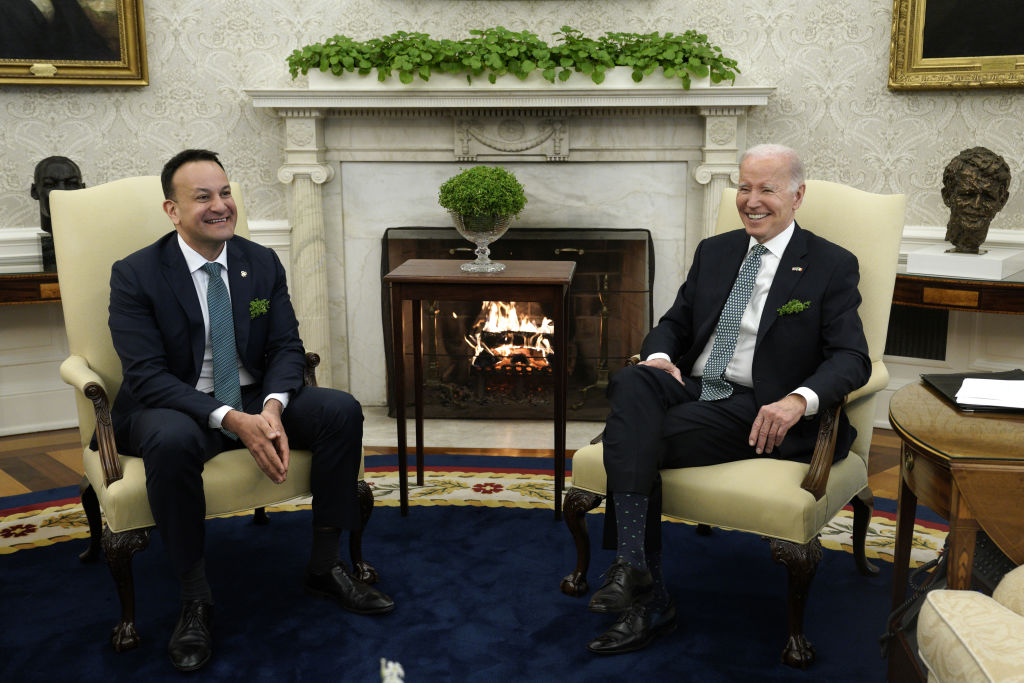 10 things you need to know today: March 18, 2023
10 things you need to know today: March 18, 2023Daily Briefing Trump says he expects to be arrested Tuesday in Manhattan, Biden hosts Irish Taoiseach at White House for St. Patrick’s Day, and more